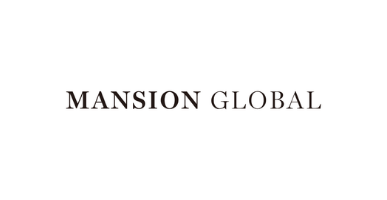Residential property prices slowed last month as purchasers anticipate the end of the government’s stamp duty holiday at the end of March, the latest data from Nationwide shows.
On an annual basis, property price growth slowed modestly to 6.4% in January, from 7.3% in December.
On a monthly basis, prices dropped by 0.3% – the first monthly decline since June. The average price in January stood at £229,748, down from £230,920 a month earlier.
Robert Gardner, Nationwide’s chief economist, commented: “To a large extent, the slowdown probably reflects a tapering of demand ahead of the end of the stamp duty holiday, which prompted many people considering a house move to bring forward their purchase.
“While the stamp duty holiday is not due to expire until the end of March, activity would be expected to weaken well before that, given that the purchase process typically takes several months.”
The slight fall in property prices last month is best seen “as a dab on the brakes rather than a post-party hangover”, according to Jonathan Hopper, CEO of Garrington Property Finders.
He believes that the previous pace of rapid price growth seen in the latter half of 2020 was simply “unsustainable”, and that market activity has generally slowed due to the current lockdown restrictions.
“The surge in buyer demand will continue to be a decisive factor, stamp duty holiday or not,” he said.
Looking ahead, the market will need a few months to rebalance, according to Hopper.
He added: “The supply of homes coming onto the market has been interrupted by the lockdown, and this should support prices in the short-term, while in the longer-term price growth should ease as the supply pipeline improves.”
Lucy Pendleton, of James Pendleton estate agents, commented: “Forget the mild monthly price decline, this [latest property price data] is hardly the performance of a market in peril.
“The fact that most buyers agreeing purchases now will almost certainly miss out on stamp duty relief has barely moved the needle so there are wider factors at work here and chances are they’ve been cooking up a storm all along.”
While most estate agents would like to see the current stamp duty holiday deadline extended to enable buyers to benefit from the relief, this would potentially create the same issues further down the line, according to John Phillips, national operations director, Just Mortgages and Spicerhaart.
He said: “There has been talk of a cliff edge as we near 31st March, however while the stamp duty holiday has undoubtably spurred some people into action, the market has not been driven by it. People will still want to move homes.”
Phillips added: “While we understand the calls to extend the deadline, we expect the market to continue to thrive regardless of whether the holiday is extended.”
David Westgate, group chief executive at Andrews Property Group, concurred: “The slight drop-off in prices during January is wholly understandable rather than a cause for serious concern.
“The end of the Stamp Duty holiday and the threat of rising unemployment will of course put some downward pressure on prices, but we do not expect activity levels to drop off sharply.
“There are many positives that could support values during 2021.
“As more and more people are vaccinated against Covid-19, they will want to get on with their lives, and buying and selling property will play a key role in that.”
However, the director of Benham and Reeves, Marc von Grundherr, predicts that a period of heightened instability is on the cards as the end of the stamp duty holiday causes a spike in sales falling through.
He commented: “The party is nearly over where a stamp duty reprieve is concerned, but will homebuyers still be dancing when the music stops? While many have benefitted from the saving, many more are still waiting to complete and missing the deadline could cause a different sort of market chaos to that seen in recent months.”
He added: “This market wobble could result in a far more notable decline in house prices as the deck is reshuffled. However, the market is extremely resilient and so any correction is likely to be short lived before it finds its feet, once again.”
The group CEO of Enness Global Mortgages, Islay Robinson, points out that a notable tightening of the belt across the lending space has made it much harder for the average homebuyer to secure a mortgage, despite interest rates remaining extremely low.
Robinson said: “Without the additional motivation of a stamp duty holiday to drive them to transact, it’s very likely that this dwindling mortgage availability will cause transactional volume to decline during the second and third quarters of this year; cooling the rate of house price growth further in the process.
“Despite this, the market remains extremely attractive for those with stronger financial foundations beneath them and we expect to see a robust level of activity at the top end keep the overall market moving forward.”
In summary January was still an impressive month for UK house prices, especially when you compare the 6.4% annual growth to the 1.9% reported this time last year.
Sam Mitchell, CEO of online estate agent Strike, said: “Understandably many will be questioning how long the demand can last, particularly in the context of the wider economic changes on the horizon, from rising unemployment levels to the impact of Brexit and uncertainty around stamp duty. However, ongoing low interest rates and higher loan to value lending, coupled with vaccination confidence and people continuing to reassess what they need in a home, will definitely continue to help demand remain strong for a long time to come.
“In the absence of a glass ball no one can be certain about what lies ahead, but we can confidently say that the market has been faced by challenges like this before – and it always comes out the other side stronger than ever. The government is committed to helping Britons buy homes and move up the property ladder, and will likely do whatever it takes to keep house prices steady despite any economic changes.”




